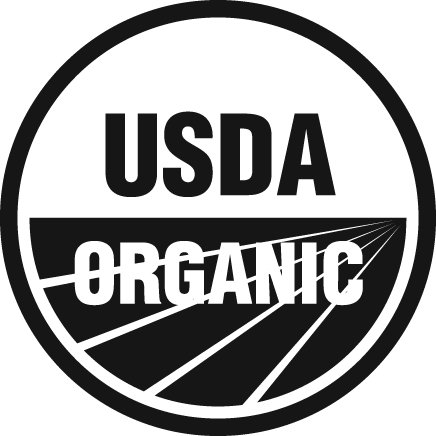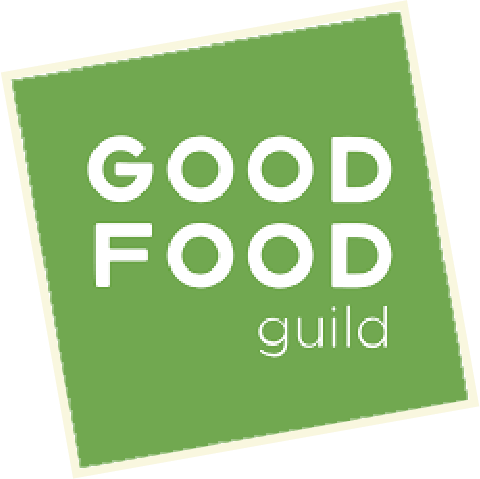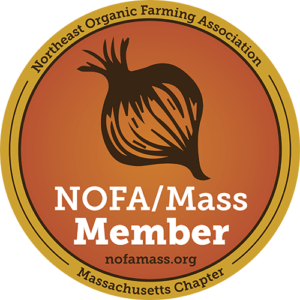

Addie and I are just back from the Good Food Awards in San Francisco, where we were honored for the 2nd year in a row for our Organic Garlic Dill Pickles. While our first experience at the Good Food Awards in 2011 was quite special, this time around we were fortunate enough to receive an additional honor: Real Pickles was selected by our 10 fellow pickle winners from around the country to deliver the acceptance speech for the group! (Thanks, picklers!)
At the ceremony, each pickle winner was called up to the stage and received a Good Food Awards medal from renowned chef and food activist Alice Waters. And, then I delivered the speech:
Thanks very much. My partner Addie and I are thrilled to be back at the Good Food Awards for a 2nd time as part of what is again a fantastic pickle posse!
I think pickles are a really great fit with the Good Food Awards, with its focus on helping to bring good food back into the American diet, promoting both taste and social responsibility. Pickle-makers in the United States have much to offer on both counts, and I would say the winners here tonight are clear illustrations of that.
Those engaged in the craft today are drawing on pickling traditions from around the world to produce tasty pickles, as three of tonight’s winners did – Farmhouse Culture, Spirit Creek Farm, and Firefly Kitchens – in creating a version of the Salvadoran classic, curtido. And we are drawing on the American pickling tradition, as Cuisine En Locale did to produce their winning pickled peaches (which I’m very excited to try).
Some of us here (like Olykraut) are using the traditional fermentation process to make our pickles, while others (like Miss Jenny’s and Let’s Be Frank) are using the modern vinegar approach. Both are great ways to preserve the wonderful flavors of organically-grown produce and indeed to enhance those flavors along the way.
Pickle-makers are also making major contributions in the realm of social responsibility. Our special tool of course, our not-so-secret weapon, is our ability to take perishable fruits and vegetables and make them non-perishable, and yet still tasty and nutritious.
In an industrial food system – with monoculture farming and long-distance food transport (both made possible by cheap fossil fuels) – one might be tempted to wonder if pickles are obsolete. I mean, why bother with making dill pickles for winter when we can just buy in cucumbers from Mexico, right? Part of the answer, of course, is: Who really could live without pickles? (I know, I might be a little bit biased.)
But, as it turns out: pickles are not obsolete anyway. Because, as more and more Americans are coming to realize, our industrial food system is broken. It doesn’t work. It’s causing or exacerbating a huge list of ecological and social ills, from climate change and soil erosion to human disease epidemics and the decline of our rural economies. What we need instead is a regionally-based organic food system where everyone (not just the privileged few) has access to healthy food from small producers located (whenever possible) within their own region.
And in such a food system, pickles are an essential food: one that can keep people eating nutritious fruits and vegetables from regional sources all year long, regardless of how cold the weather gets.
Our contribution to building a regional, organic food system is an important part of what we pickle-makers are being honored for tonight. So many of the winning producers here have developed close relationships with their local farmers to source their ingredients, as we have done in Massachusetts at Real Pickles, Sour Puss Pickles has done in New York, and Emmy’s has done here in California; while others are growing ingredients themselves, like Ann’s Raspberry Farm.
And, thus, just as practitioners of each craft being honored here tonight are contributing to the task of making “good food” the norm in America, so too are those of the pickling craft. And, I think I can safely speak for all of my fellow pickle winners when I express sincere gratitude to the organizers of the Good Food Awards for doing your part to help promote our work and achieve wider recognition for it. So, thank you very much.




